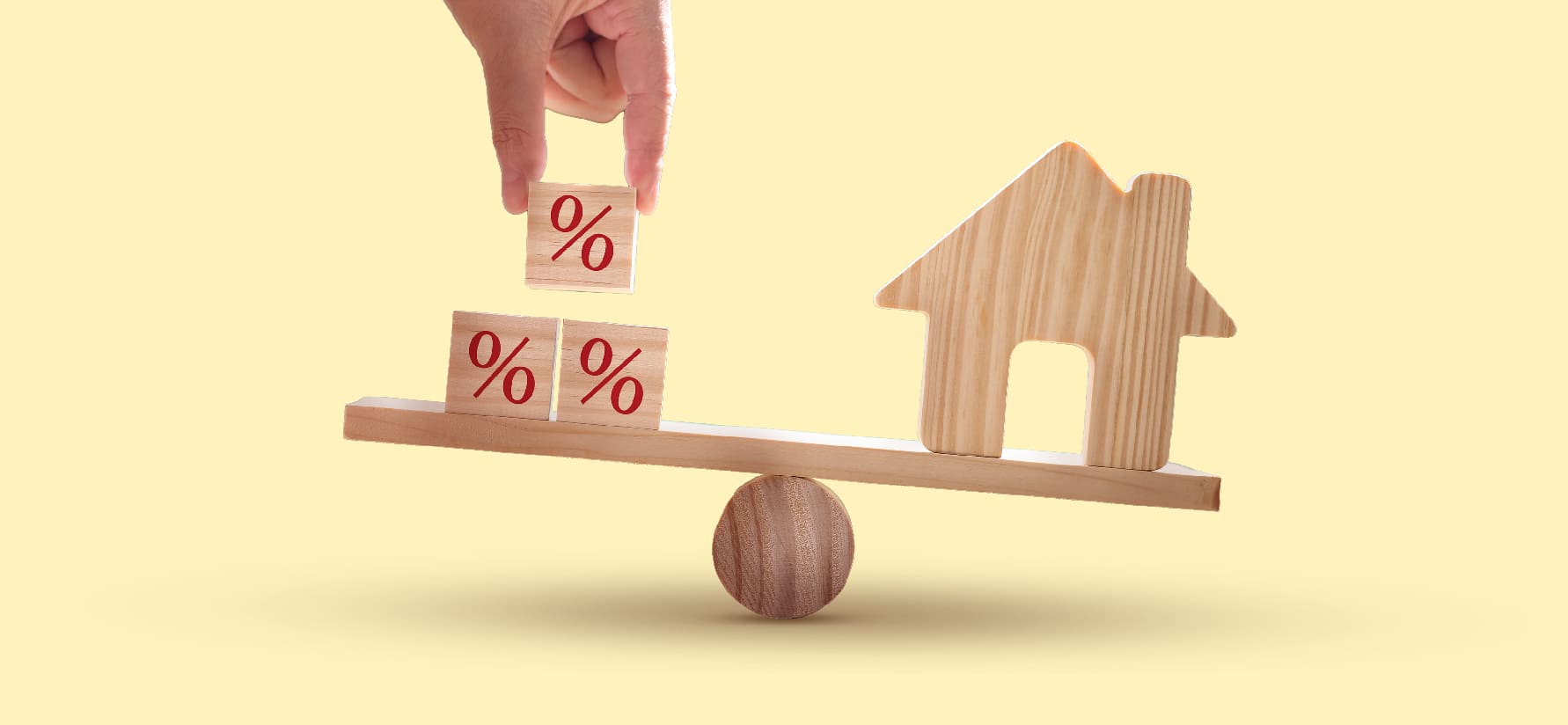Fixed or Floating Home Loan Interest Rate: Which is Better?

Buying a home is one of the most significant financial decisions you’ll make in your lifetime. With various home loan options available, one crucial aspect to consider is the interest rate. The type of interest rate you choose can impact your finances for years to come.
Choosing the right home loan interest rate is essential as it affects your financial stability and affordability. Home loans come in different types, primarily categorized into fixed-rate and floating-rate loans. Each type has its advantages and considerations, making it crucial to understand how they influence your finances. Understanding these options will help you make a sound decision that aligns with your financial budget and market expectations.
Decoding Fixed-Rate & Floating-Rate Home Loans
A fixed-rate home loan features a constant interest rate throughout the loan term, ensuring stable and predictable monthly payments without fluctuations due to market conditions. In contrast, a floating-rate home loan has an interest rate that varies based on market benchmarks, which means your payments can change over time. While floating-rate loans can offer lower initial rates and potential savings if market rates fall, they also carry the risk of increased costs in case the rates rise.Understanding Fixed-Rate Loans
Fixed-rate home loans are designed with a constant interest rate throughout the loan tenure. This means your monthly EMI (Equated Monthly Installment) remains intact for the entire loan term, providing a stable and predictable repayment schedule. Here are a few benefits of fixed-rate loans;- Predictable Payments
- Financial Planning
- Protection Against Rising Rates
When to Opt for Fixed-Rate Loans?
- Comfortable with EMI and Steady Payments
- Expect Interest Rates to Rise
- Interest Rate Impact
What is Floating-Rate Home Loans?
Floating-rate home loans, also known as variable-rate loans, have an interest rate that fluctuates based on market conditions. The rate is usually linked to a benchmark interest rate, which can change periodically.Why Choose Floating-Rate Loans?
- Interest Rate Variation
- Potential for Lower Interest Rates
- No Prepayment Penalty
- Suitable for Long-Term Loans
- Market-Dependent
- Frequent Rate Reviews
- Flexibility in Loan Tenure
When to Opt for Floating-Rate Loans?
- Interest Rates to Fall
- Market Trends
- Short-Term Savings
Fixed vs. Floating Rate Home Loan Comparison
Both fixed and floating rate home loans carry their own set benefits and risks. However, there is a certain difference between fixed and floating interest rates that must be assessed before opting for the loan.- Fixed Rate
- Floating Rate
What to Consider While Choosing Fixed Vs. Floating Rate Loans?
- Financial Stability
- Market Trends
- Risk Tolerance
Pros and Cons: Fixed-Rate & Floating-Rate Home Loans
- Fixed Rate Pros:
- Fixed Rate Cons:
- Floating Rate Pros:
- Floating Rate Cons:
Switching Between Fixed and Floating Rates
Some lenders offer the flexibility to switch between fixed and floating rates during the loan tenure. This can be beneficial if your financial situation or market conditions change.Key Considerations to Check Before Switching
- Assess Timing and Costs
- Market Conditions and Financial Situation
Conclusion
Fixed-rate loans provide stability and predictability, making them perfect for individuals who prefer steady payments and seek protection from rising interest rates. Floating-rate loans provide flexibility and potential savings, which is ideal for those who expect interest rates to decrease or align with market trends. It is essential to check the current home loan interest rates, market trends, and personal preferences before choosing between fixed and floating rates. Besides this, you should also compare home loan interest rates to make a sound decision that fits your financial goals. For more such industry insights, stay tuned to BeyondWalls – an online property portal.Thank you. Your comment will be visible after an approval.
Comments (0)
No comments found.Featured Articles

Proven Framework for High Velocity Launches
Recent Articles

Affordability to Approval: A Practical Guide to Planning Your Home Loan EMIs

The Great Move: Why Everyone is Looking Beyond the Metros

How India’s Airport Expansion Is Reshaping Real Estate Markets

Buying a 3 BHK in PCMC? Read This Before You Finalise Anything

IGBC Certification and Green Homes: How Sustainable Buildings Add Long-Term Value

Add your comment